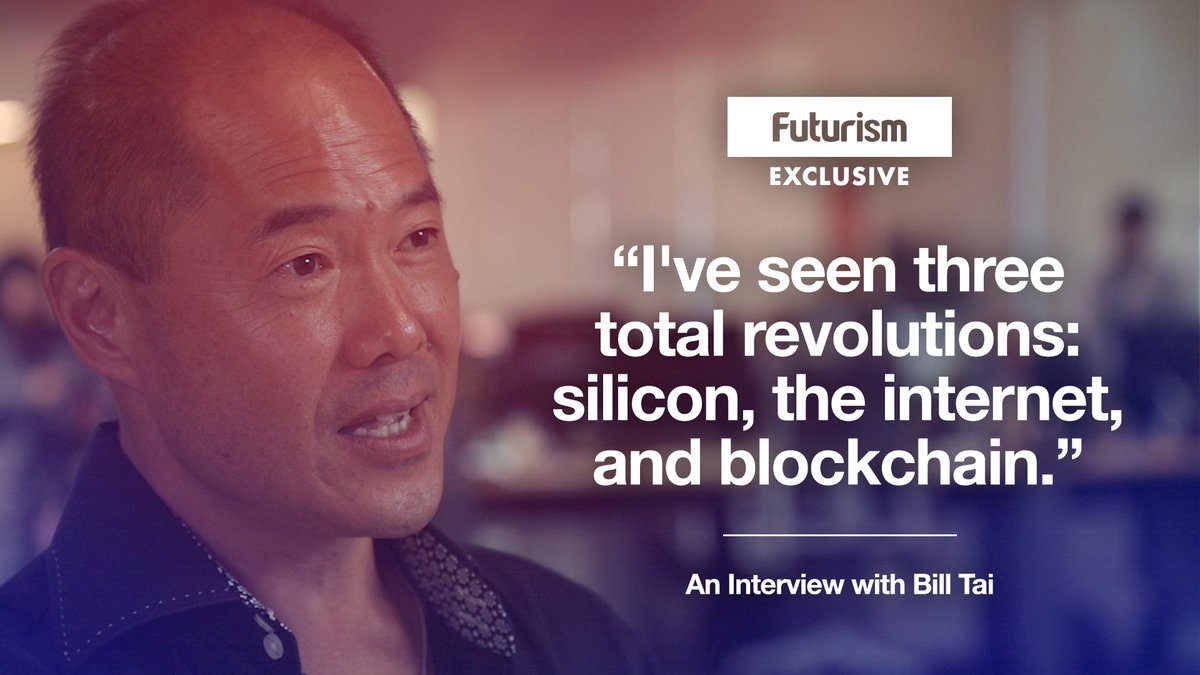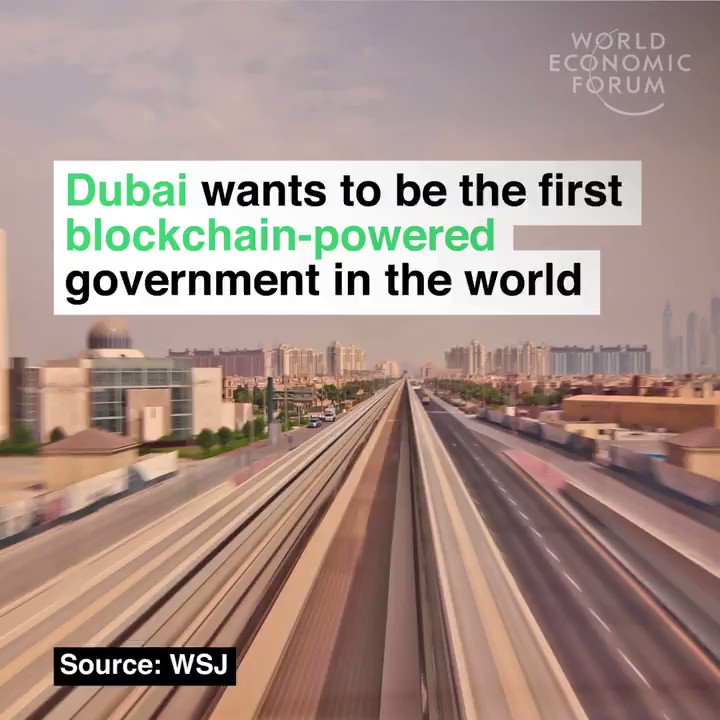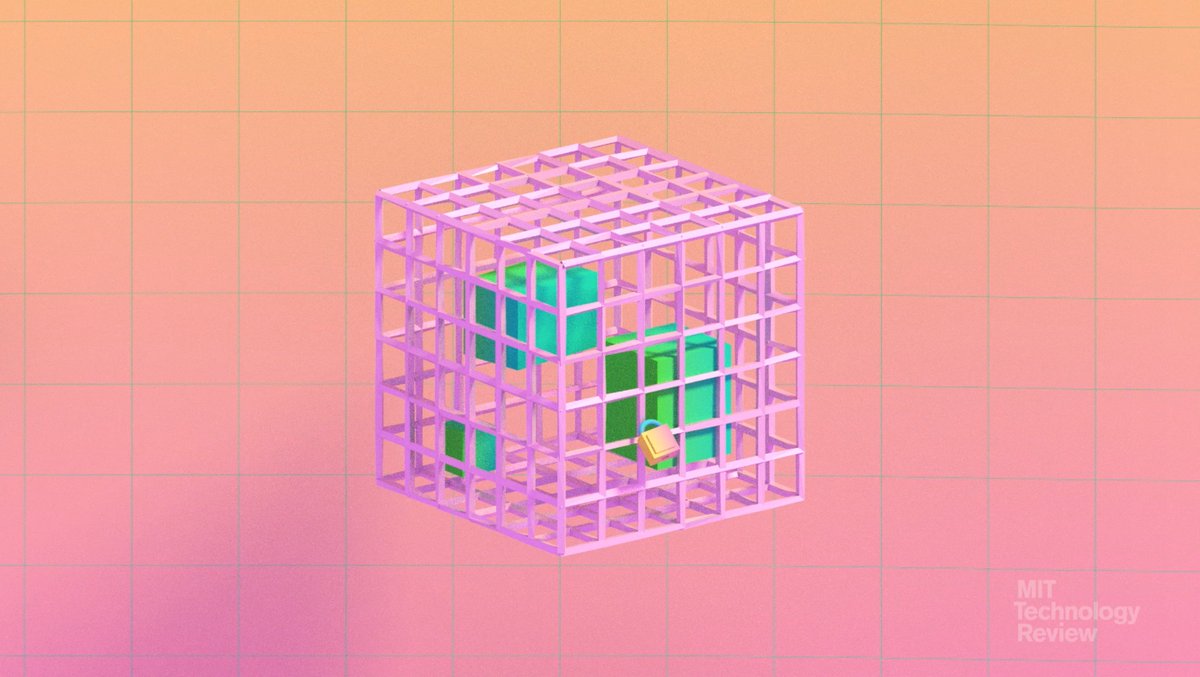“The blockchain is the most consequential technology since the internet. The internet is programmable information. The blockchain is programmable scarcity.” — Balaji Srinivasan, CEO of 21.co
The internet is entering a second era that’s based on blockchain, this according to futurist Don Tapscotte. Blockchain will also disrupt every industry.
Venture capitalist Bill Tai believes that blockchain has the potential to birth the largest companies in the world. Dubai is working towards becoming the first government powered by blockchain. There are now cities that are using blockchain to issue passports.



That means cash, commodities, currencies, stocks, bonds—everything in finance is going to be transformed, and aspects of finance baked into everything else. If you deal with information, you need the internet. If you deal with money, you need to deal with blockchains. — Balaji Srinivasan
What is Blockchain?
Blockchain is a type of data structure that’s used to create a digital ledger of transactions and share it among a distributed network of computers. The distribution network could include smart phones, tablets, cloud-based resources or on-premises compute nodes.
Imagine a universal digital ledger that helps shape how you transact with other individuals or entities all in a secure and anonymous fashion. A key outgrowth of the ledger is the idea of “smart contracts”, which “provide security superior to traditional contract law and reduce other transaction costs associated with contracting”.

WEFHow a blockchain worksHere is a short primer video from MIT Technology Review on blockchain:

Marjorie is a former IBM solutions architect, now at Salesforce, responsible for lending her expertise in enterprise architecture to lead rapid prototyping and development of solutions in the emerging technologies space, aimed at accelerating digital business transformation and implementation and integration of new technologies.
Blockchain Is Changing the Healthcare and Life Science IndustryGovernment and states domestically and globally have started to explore the Blockchain technology for streamlining back-office paper trails and business operations.
In 2007, the government of Estonia began a nationwide implementation of a version of Blockchain to secure all Electronic Health Records (EHRs) in the country running on the Guardtime Blockchain (specializing in “Keyless Signature Infrastructure – KSI) to authenticate on a massive scale. Estonia has virtually eliminated the need to have a Health Information Exchange (HIE), all-payer claims database, or Electronic Medical Records (EMRs).
This has made the entire population much more “health smart” and built a huge foundation of trust for accessing patient records. In 2015, they started streamlining driver license renewals with over 80,000 medical certificates being forwarded to its Road Administration Agency.
On May 10, 2016, the Estonian and Finnish Prime Ministers signed a joint declaration to allow patient data exchange, cross-border e-services and e-prescriptions.
Hospitals can have as many as 20 different ways to enter a simple date-of-birth for a patient. Blockchain can tie patients to their data, rather than identity.
According to Deloitte, the healthcare industry is planning the most aggressive deployments of blockchain, with 35 percent of health and life sciences planning to deploy by 2018. Deloitte found that 28 percent of respondents across all industries said they’d already invested $5 million or more, while 10 percent have invested $10 million or more in blockchain.
The proof-of-work scheme is also making inroads for clinical trials where the Blockchain verification can help increase trust, integrity in clinical research publication and restore some of the tarnished reputation from the clinical research community. Clinicians applaud the decentralized ledger that allows for a simpler, more efficient and cheaper way to share peer-reviewed research.
According to a Deloitte study, blockchain is an enabler of nationwide interoperability. The Office of the National Coordinator for Health Information Technology issued a shared nationwide interoperability roadmap, which defines critical policy and technical components needed for nationwide interoperability, including:
1. Ubiquitous, secure network infrastructure,
2. Verifiable identity and authentication of all participant, and 3. Consistent representation of authorization to access electronic health information, and several other requirements.
Summary of Blockchain opportunities Across Markets
 FORBES
FORBES
Blockchain technology - promising use cases for healthcare industryBlockchain Disruption in Healthcare
Blockchain technology is particularly helpful to streamline processes, minimize fraud, lower operational costs, eliminate duplication of work and generate new ways to integrate in a sharing-based economy.
Salesforce has an excellent foundation to help capture and manage a patient’s profile, their preferences, visibility to the patient’s entire care-giver(s), what it takes to engage and stay connected with the care-giver(s), what interests lies in the community that they are a part of and how to cultivate the entire patient journey.
Let’s imagine Samantha is part of the Blockchain for a new chronic arthritis research program and is sharing her progress with a clinical institution about a new type of pain management drug. Samantha learns from the network that they are looking for donors to share their latest experiences with the latest advances in arthritic care.
She decides to communicate the new program within the “Salesforce Arthritis Care Community” to expand her outreach to other patients who are also looking at advances in pain care.
Samantha remembers another community member, Mark (who shares similar interests about the program), is curious as to how he can donate to science and at the same time, learn more about the new clinical trials benefiting from his contribution.
Patients have minimal or no trace-ability of the types of research benefiting their contribution. With Oprah’s recent...continue reading:
http://www.huffingtonpost.com/entry/blockchain-innovation-in-healthcare-and-life-sciences_us_59c9129...
The internet is entering a second era that’s based on blockchain, this according to futurist Don Tapscotte. Blockchain will also disrupt every industry.
Venture capitalist Bill Tai believes that blockchain has the potential to birth the largest companies in the world. Dubai is working towards becoming the first government powered by blockchain. There are now cities that are using blockchain to issue passports.



I recently interviewed Balaji Srinivasan, CEO of 21.co that is using blockchain to revolutionize sales and marketing. Srinivasan recently noted that blockchain is the internet of money. “With the blockchain, everything that was scarce now becomes programmable.
That means cash, commodities, currencies, stocks, bonds—everything in finance is going to be transformed, and aspects of finance baked into everything else. If you deal with information, you need the internet. If you deal with money, you need to deal with blockchains. — Balaji Srinivasan
What is Blockchain?
Blockchain is a type of data structure that’s used to create a digital ledger of transactions and share it among a distributed network of computers. The distribution network could include smart phones, tablets, cloud-based resources or on-premises compute nodes.
Imagine a universal digital ledger that helps shape how you transact with other individuals or entities all in a secure and anonymous fashion. A key outgrowth of the ledger is the idea of “smart contracts”, which “provide security superior to traditional contract law and reduce other transaction costs associated with contracting”.

WEFHow a blockchain worksHere is a short primer video from MIT Technology Review on blockchain:

To learn more about Blockchain in the healthcare industry, I worked with Marjorie Tan-Thronson, Principal Enterprise Architect at Salesforce.
Marjorie is a former IBM solutions architect, now at Salesforce, responsible for lending her expertise in enterprise architecture to lead rapid prototyping and development of solutions in the emerging technologies space, aimed at accelerating digital business transformation and implementation and integration of new technologies.
Blockchain Is Changing the Healthcare and Life Science IndustryGovernment and states domestically and globally have started to explore the Blockchain technology for streamlining back-office paper trails and business operations.
In 2007, the government of Estonia began a nationwide implementation of a version of Blockchain to secure all Electronic Health Records (EHRs) in the country running on the Guardtime Blockchain (specializing in “Keyless Signature Infrastructure – KSI) to authenticate on a massive scale. Estonia has virtually eliminated the need to have a Health Information Exchange (HIE), all-payer claims database, or Electronic Medical Records (EMRs).
This has made the entire population much more “health smart” and built a huge foundation of trust for accessing patient records. In 2015, they started streamlining driver license renewals with over 80,000 medical certificates being forwarded to its Road Administration Agency.
On May 10, 2016, the Estonian and Finnish Prime Ministers signed a joint declaration to allow patient data exchange, cross-border e-services and e-prescriptions.
Hospitals can have as many as 20 different ways to enter a simple date-of-birth for a patient. Blockchain can tie patients to their data, rather than identity.
According to Deloitte, the healthcare industry is planning the most aggressive deployments of blockchain, with 35 percent of health and life sciences planning to deploy by 2018. Deloitte found that 28 percent of respondents across all industries said they’d already invested $5 million or more, while 10 percent have invested $10 million or more in blockchain.
The proof-of-work scheme is also making inroads for clinical trials where the Blockchain verification can help increase trust, integrity in clinical research publication and restore some of the tarnished reputation from the clinical research community. Clinicians applaud the decentralized ledger that allows for a simpler, more efficient and cheaper way to share peer-reviewed research.
According to a Deloitte study, blockchain is an enabler of nationwide interoperability. The Office of the National Coordinator for Health Information Technology issued a shared nationwide interoperability roadmap, which defines critical policy and technical components needed for nationwide interoperability, including:
1. Ubiquitous, secure network infrastructure,
2. Verifiable identity and authentication of all participant, and 3. Consistent representation of authorization to access electronic health information, and several other requirements.
Summary of Blockchain opportunities Across Markets
- Broader awareness of new clinical studies, disease prevention and genome strains. This could start with grants to help researchers develop a repository to support clinical trials especially for diseases that have no cure currently.
- Donors in the network can choose the research cause to benefit further advancement, gain control of the data sharing process and be rewarded
- Rewards as part of the Blockchain contribution generates the emergence of a new shared economy (“Shareconomies”) where members in the network benefit from being “Claimless”
- New treatments and drug discovery to reach FDA approvals is faster because the sampling pool of data is much more diverse, focused and accessible
- Duplication of work and fraud is minimized as consensus of parties in the network embodies trust in the network
- Smart contracts allow for logic to be enforced on top of the Blockchain transaction. This means rules can be executed in terms of how the transactions are carried out as per the contract
 FORBES
FORBESBlockchain technology - promising use cases for healthcare industryBlockchain Disruption in Healthcare
Blockchain technology is particularly helpful to streamline processes, minimize fraud, lower operational costs, eliminate duplication of work and generate new ways to integrate in a sharing-based economy.
Salesforce has an excellent foundation to help capture and manage a patient’s profile, their preferences, visibility to the patient’s entire care-giver(s), what it takes to engage and stay connected with the care-giver(s), what interests lies in the community that they are a part of and how to cultivate the entire patient journey.
Let’s imagine Samantha is part of the Blockchain for a new chronic arthritis research program and is sharing her progress with a clinical institution about a new type of pain management drug. Samantha learns from the network that they are looking for donors to share their latest experiences with the latest advances in arthritic care.
She decides to communicate the new program within the “Salesforce Arthritis Care Community” to expand her outreach to other patients who are also looking at advances in pain care.
Samantha remembers another community member, Mark (who shares similar interests about the program), is curious as to how he can donate to science and at the same time, learn more about the new clinical trials benefiting from his contribution.
Patients have minimal or no trace-ability of the types of research benefiting their contribution. With Oprah’s recent...continue reading:
http://www.huffingtonpost.com/entry/blockchain-innovation-in-healthcare-and-life-sciences_us_59c9129...





